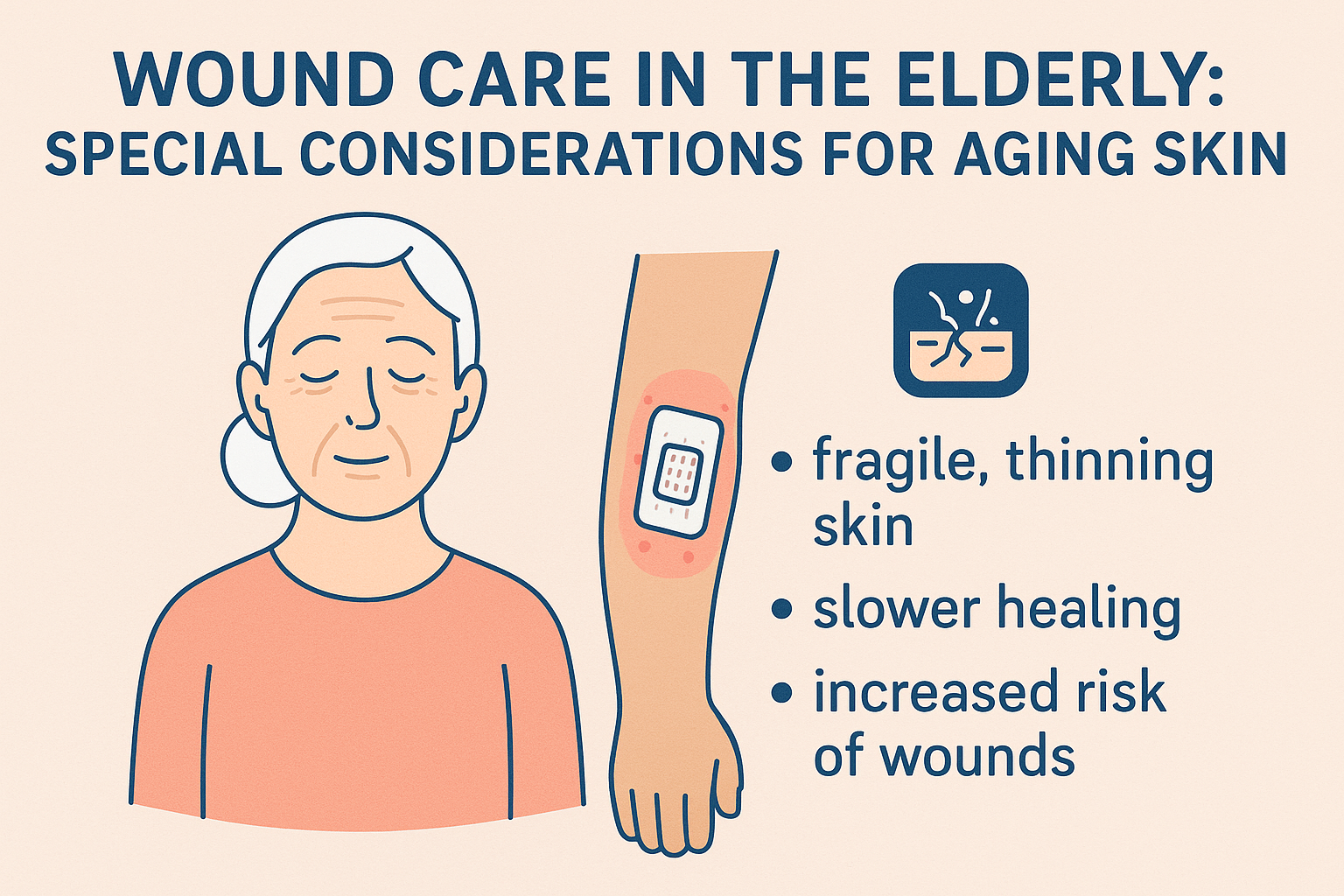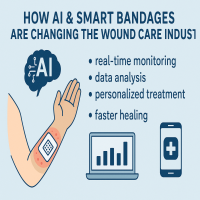Wound Care in the Elderly: Special Considerations for Aging Skin

Strong 8k brings an ultra-HD IPTV experience to your living room and your pocket.
As we age, our skin undergoes numerous physiological changes that make it more susceptible to injury and delayed wound healing. For elderly individuals, even minor wounds can quickly become chronic or infected if not properly managed. With the population of adults over 65 rapidly increasing, healthcare professionals and caregivers must understand the unique challenges of wound care in older adults to ensure optimal outcomes.
The Aging Skin: A Complex Landscape
The skin is the body’s largest organ, and it plays a vital role in protecting against environmental threats, regulating temperature, and preventing dehydration. However, with age, its structure and function decline. Key changes include:
Thinning of the epidermis and dermis: This leads to increased fragility and a reduced barrier function.
Decreased collagen and elastin production: Resulting in less elasticity and resilience.
Reduced blood flow: Compromises the delivery of oxygen and nutrients essential for healing.
Slower cell turnover: Extends the inflammatory and proliferative phases of wound healing.
Diminished immune response: Increases vulnerability to infection.
These changes mean that even minor injuries like abrasions or pressure spots can become serious concerns for elderly patients.
Common Wound Types in the Elderly
Elderly individuals are more prone to several types of wounds, including:
Pressure injuries (bedsores): Often due to prolonged immobility.
Venous ulcers: Related to chronic venous insufficiency.
Arterial ulcers: Develop when oxygen-rich blood has difficulty reaching the tissues due to restricted arterial circulation.
Diabetic foot ulcers: Common among older adults with long-standing diabetes.
Skin tears: Often occur from minor impacts or friction, especially in older adults with delicate, thinning skin.
Each of these wound types requires a targeted approach based on the underlying cause and the individual’s overall health status.
Special Considerations in Geriatric Wound Care
Managing wounds in elderly patients requires a comprehensive and sensitive approach. Here are several key considerations:
1. Assessment of Nutritional Status
Adequate nutrition is essential for wound healing. Older adults often face nutritional deficiencies due to factors like reduced appetite, dental issues, or underlying chronic illnesses. Ensuring sufficient intake of protein, vitamins (particularly A and C), and minerals like zinc can support the body’s healing processes.
2. Moisture Balance
Maintaining a moist wound environment has been shown to promote healing while minimizing the risk of infection and scarring. However, elderly skin is more susceptible to both drying out and maceration. Selecting the appropriate wound dressing is crucial. Advanced wound care dressings, such as hydrocolloids, hydrogels, and bioactive collagen products, can help manage moisture effectively.
3. Infection Prevention and Control
The aging immune system doesn’t respond to pathogens as efficiently. It’s essential to monitor wounds closely for signs of infection, including increased pain, redness, exudate, or odor. Appropriate wound cleansing protocols and, when necessary, the use of antimicrobial dressings can help reduce the risk of complications. Any use of topical or systemic antimicrobials must be guided by clinical evaluation and consistent with approved medical guidelines.
4. Pain Management
Chronic wounds can cause ongoing discomfort, especially in older patients who may already be dealing with conditions such as arthritis or neuropathy. Pain should be assessed regularly and managed through both pharmacological and non-pharmacological strategies, always taking into account potential drug interactions and renal or hepatic function in the elderly.
5. Mobility and Pressure Offloading
For patients with limited mobility, frequent repositioning and the use of support surfaces such as specialized mattresses or cushions can prevent pressure injuries. Repositioning and relieving pressure on vulnerable areas are fundamental strategies for both preventing and managing wounds in older individuals.
6. Comorbidity Management
Conditions like diabetes, vascular disease, and cognitive impairments can significantly influence wound healing. A holistic approach that includes management of these conditions can improve wound outcomes and reduce recurrence.
Empowering Caregivers and Patients
The involvement of caregivers is essential in promoting recovery and ensuring proper wound care for aging patients. Educating them about proper wound care techniques, signs of complications, and the importance of follow-up care empowers them to participate actively in the healing process.
In addition, involving the patient in their care whenever possible can improve compliance and promote a sense of autonomy and dignity.
The Role of Advanced Wound Care Solutions
Innovative products, such as bioactive dressings that incorporate collagen or other naturally derived materials, can support the body’s own healing mechanisms. These products are particularly beneficial for chronic or non-healing wounds, which are more common in the elderly population.
Enhancing Healing Outcomes for the Aging Population
Wound care in the elderly is a complex but critically important aspect of healthcare. By recognizing the unique challenges posed by aging skin and addressing them through thoughtful, evidence-based care, healthcare providers and caregivers can help improve healing outcomes and quality of life for older adults. As the field of wound care continues to evolve, adopting tailored strategies and utilizing advanced technologies will be key to meeting the needs of this growing patient population.
Note: IndiBlogHub features both user-submitted and editorial content. We do not verify third-party contributions. Read our Disclaimer and Privacy Policyfor details.


